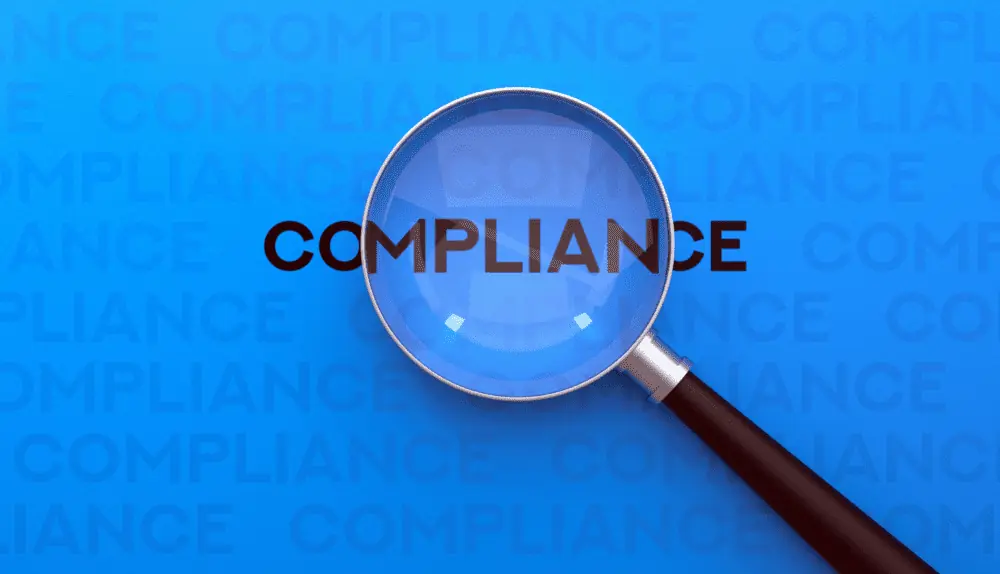While there are no requirements stating that you must be PCI compliant, it is strongly recommended that you attain compliance. The consequences of not being PCI compliant can be risky, especially when you consider some of the expenses that come with the work.
The PCI standards focus on protecting cardholder data and ensuring all credit card transactions stay safe. PCI rules include points on how to store data, how it will be accessed, and what protective measures you’ll utilize. All businesses require proper protection to ensure their safety.
Some businesses may not be PCI compliant. A merchant service provider can scan a company’s network and processing system to find possible flaws in the setup. It could find things like an outdated firewall or a business storing excess amounts of data on each card.
A business that doesn’t meet PCI compliance rules could incur a non-compliance fee from a merchant account provider each month until the company updates its work and complies with these points. But the risks of not being compliant go well beyond this concern.
The General Rule

All businesses must be PCI compliant, but not all of them have to validate their compliance. A business could potentially remain non-compliant if it wishes.
Merchant service providers and acquiring banks must review all retailers to see how they meet PCI standards and if they are safe to support. Any retailer that doesn’t meet PCI compliance rules will be flagged and could be fined or subject to other restrictions.
Individual card networks may also have compliance rules. Visa is one example, as Visa requires all businesses to be validated to meet PCI standards.
The PCI rules include many basics for protecting cardholder data, including securing all sensitive pieces of content, limiting access, and using firewalls and antivirus programs. These are sensible solutions for protecting data, but they also provide coverage for whatever needs a company holds. You can trust PCI compliance rules when keeping your business intact, but following them will especially be critical to your general success.
Costs of Non-Compliance Are Dangerous

You will be liable for any losses that occur if your business isn’t compliant. PCI compliance rules state that you must responsibly protect cardholder data and ensure only suitable parties access the content. Those people must also only reach your cardholder data on a need-to-know basis.
The potential losses from a security breach can be dramatic. You could lose thousands or millions of dollars due to fraud or theft. The cost to repair your network or another setup could also be dramatic.
There’s also the risk of you losing the trust of people if you experience a breach. Possible customers will think twice before sending their card data off to you if you aren’t compliant.
Credit Card Companies Can Fine You For Non-Compliance

Your merchant service provider isn’t the only entity that could charge non-compliance fees. The credit card networks could also impose fees worth thousands of dollars each month. These fees can vary surrounding how many transactions you complete each month and the level of compliance you should meet.
Networks have unique rules for compliance, but they generally entail checking how well businesses can manage their data and ensure it is easy to access. The networks will require all data they access to be accurate and useful. Anything less will be a sign that your business cannot handle its data well, thus resulting in significant fines from whoever finds you are unable to handle your work well.
Revenue Loss Is Possible If You Don’t Comply
Non-compliance can result in lost revenue due to your business not protecting everyone’s data. Businesses that don’t comply with PCI rules often experience breaches, which people can learn about in the news. Possible customers won’t want to support you if they don’t think you can protect their data. Therefore, you will lose revenue from all those people.
Validation Keeps Your Costs Down
You will spend less money accepting card payments when you reach PCI compliance. Validation entails more than keeping you from losing money from breaches or a lack of trust. You’ll also reduce the risk of doing business with your company. Your data security standards can help you qualify for lower processing rates.
You will likely receive discounted rates from merchant account providers when you follow all PCI rules and continue to meet these points. Card networks likely won’t change your rates, as they traditionally require the same fees for all businesses. But you could still enter a merchant code with less of a risk depending on your situation.
What About PCI Compliance Fees?
Some merchant account providers might impose PCI compliance fees on businesses. These charges entail spending extra on scans and reviews to ensure your compliance.
Not all service providers will require these fees. The ones that do charge these fees will require minimal amounts for these functions. The small cost will be worthwhile when you consider the possible losses you’ll incur for not being compliant.
Check Your Provider
Look at how your merchant service provider can work for your PCI compliance fees. Many teams will offer fraud protection solutions and other services to help you protect your data and reduce your risk of breaches.
The provider must also help you review how you manage your PCI efforts. Most of the protections for your business is your responsibility. You must review how your business collects data and that you’re not putting yourself at risk of losing what you hold.
Remember that you are required to be PCI compliant if you want to accept credit card payments. You could still operate without compliance and not validate your business, but that doesn’t mean it is a good idea to not reach compliance. Talk with your merchant service provider for details on how you can comply with PCI rules. Your work should be about ensuring you can handle your data well and that no one will be at risk of leaving your group.

